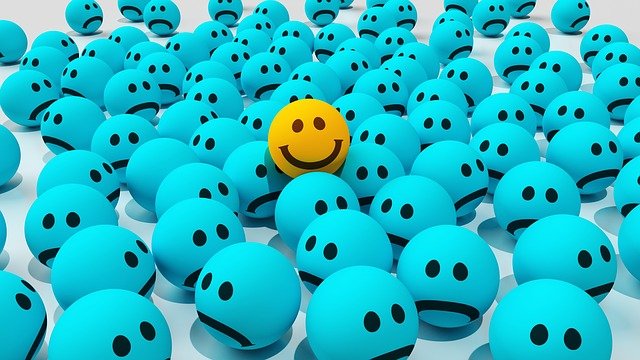Like anybody with a long career, I have worked with a great variety of people. I have had the great pleasure of working alongside brilliant logicians who shrink a dozen lines of code down to one line of clarity. I have also worked with their counterparts who, while brilliant in their own right, are blinded by the fact that they see humans and humanity in the same binary terms as the machines they manipulate. I have been thrilled to sit with people who design experiments that clearly reflect the beauty of testing the null hypothesis in order to deliver results that stand up to the harsh scrutiny of peer review. I have also had to suffer their opposites who are so convinced of the validity of some disproven idea that they grasp for arguments and cherry pick data to do nothing more than fuel their own comfort. I have sat in rooms of people with the word “chief” in their title who have taken, in short order, the seed of an idea and turned it into a challenge that can be handed off to engineering teams to turn into something that will improve humanity in any number of ways. I have sadly also seen people with big titles who squash ideas that are not limited by the hard realities of physics or known dangers, but rather they seem to act out of a personal desire to avoid the hassles that come with highly challenging or high risk projects. After decades of noting these patterns, I have seen some clear characteristics emerge in the people that I have come to admire – and in many cases – call friends. Many of these characteristics are rooted in the Montessori education.
People who do amazing things are lifelong learners. This doesn’t mean that they decide they are going to go back to school or take some classes at 50 (though good for those who decide to do this). The lifelong learners I know are curious about a variety of things and simply dig in and figure things out. Frequently they do this for no other reason than just to have the knowledge in their back pocket. And that brings me to my second characteristic.
All knowledge is useful. Learning something about one subject area may come in handy one day when designing a solution in another subject area. You don’t have to be (and probably never will be) an expert in each area, but knowledge is inspiration for all sorts of ideas. This brings me to the next characteristic.
Ask questions of people that know more than you do about something. Whether finding a mentor to help you come up to speed on a new challenge or simply running an idea by someone who knows something you need to understand – the benefit of gaining knowledge from the experience of someone with more exposure is priceless. Of course there is a reciprocal to this.
Share what you know freely. Whether you are a nuclear physicist, a geologist, a health researcher, a marketing exec, an accountant, a policeman, a woodworker/carpenter, or anything else – be a resource. If someone asks you how to approach launching a campaign for a new business, share. But you don’t necessarily need to wait.
Engage openly with ways that help you share your skills. Volunteering for youth organizations that help kids explore options in their own life is beneficial to everyone. You can even form relationships that can prove beneficial for years. I had the pleasure of interviewing a young lady entering her senior year of college who was a competitor in a coding contest my company sponsored when she was in high school. Her foot was in the door because she had taken the initiative to put herself out to the volunteers working the contest… and they remembered her 6 years later. That brings me to the next characteristic.
The young lady I mentioned understood at a young age that her life was hers and the more she owned the various pieces that constitute it, the more she grew and the more opportunity she had. Just as we tell children that their behavior isn’t somebody else’s creation nor is it somebody else’s responsibility, we tell adults similar things. You can spend your time focusing on what you think is wrong externally, but taking the time to own what you can control, building your life into something you can be proud of, is a much better use of time.
Taking time to rest and reflect as well as stepping out of the structure of controlled activities is incredibly useful. This can give us some time to rest and go freeform with our thoughts and actions. It helps us to prioritize and ask questions about what we are spending time doing. This can help us ensure that the activities and knowledge we are pursuing are aligned to worthwhile values. And that brings me to the final characteristic.
Hold good values and exercise them daily. Doing so actually helps you become your values and proliferates behaviors that will have people like me looking up to you. We know it is difficult. Unlike going to school at Greystone House where we emphasize values every day, adult life tends to throw few reminders our way about the need to be a good citizen.
One of the major reasons I love Montessori (beyond adoring children and the nearly limitless possible they each represent) is that it explicitly supports the development of all of the characteristics I listed above. When I reflect on what it is we teach and how we teach it in our early childhood education environment, I can’t help but want to ensure we are aligned to the admirable people I opened this article talking about. Ultimately for me personally, seeing how preschool aged children can adopt and practice the values of people I see as worthy of admiration inspires me personally to handle my life and relationships in the same way.





